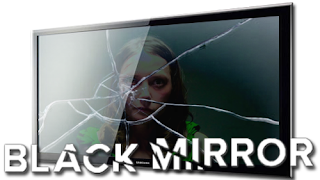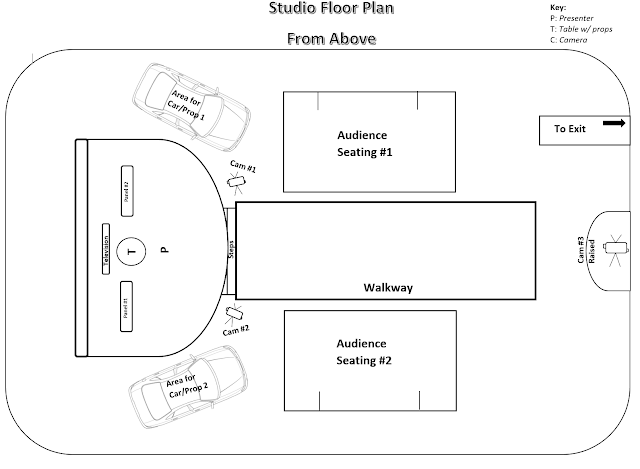As Live Production Research - What Is A Camera Operator?
Understanding My Role of Camera Operator

The role of Camera Operator is far more involved than one may initially think; A common misconception amongst those outside of the industry is that camera operation consists of little else but holding a camera and pointing it at the appropriate target, however this is of course a vast over-simplification of the role. It also involves being able to track a subject while maintaining consistent focus, framing and exposure throughout. This involves manually adjusting the zoom, focus and aperture dials on the front half of the camera while simultaneously keeping any necessary movement fluid and in time.
One of the core bases of my research into the role was an article published by Art Adams, a senior cinematography with extensive experience in camera operation within the San Francisco area. The article, titled 'Random Tips From a Professional Camera Operator' (2010) claims that there is a lot more to being a camera operator than having skill in moving the camera, with Adams particularly believing it has some degree of political influence involved when talking about the industry practice of camera operation.
If I was to ask myself what would be one of of the more concerning responsibilities as a Camera Operator I would probably say being able to fluidly track a subject without showing unnecessary camera movement or 'wobble' for lack of a better term. Due to the live nature of 'Steal the Style', once something goes out on air there is no changing it, thus emphasising the importance of the rehearsals leading up into the production day on April 19th. As Adams says "Learning to read, and react to, body language is a huge part of operating a camera. You'll get a lot further faster if you learn to follow people around and interpret body movement and language." - I find this to be particularly insightful as being able to anticipate a subject's movement before they do so is an incredibly useful skill to have as a camera operator. As of right now I'm not aware of the specific shots that I will cover during my time during the shoot, however I know there are a number of tracking shots in the show that may require such preparation.
 In contrast to this one of the points this article highlights the most is how important it is to get used to NOT moving the camera - "Sometimes some of the strongest frames are the ones that move the least and allow action to play within their borders." - While being able to fluidly move the camera when needed, it is equally crucial to know when to hold a shot. Much of the shots during our production are stationary shots, be it on presenters, models or establishing shots of the studio. For example, in an interview scenario, a subject may be seated upright, then lead slightly forward before returning to their original position. In the event of having a wide enough shot, the camera operator can simply allow them to "play the frame" so to speak, therefore avoiding trying to track the subject, though an operator must remain wary of their actions as, especially in a live environment like ours, an inaccurate or poorly framed shot can devastate the professional look of the entire production. Art Adams describes the habit that some operators possess, that of reacting to every small movement, some as minute as slight head turn as "Micro-Operating" - This is something I want to avoid during my time operating the camera for obvious reasons, it often comes across as rather amateurish in nature and doesn't serve much purpose other than distracting the audience away from the subject on-screen.
In contrast to this one of the points this article highlights the most is how important it is to get used to NOT moving the camera - "Sometimes some of the strongest frames are the ones that move the least and allow action to play within their borders." - While being able to fluidly move the camera when needed, it is equally crucial to know when to hold a shot. Much of the shots during our production are stationary shots, be it on presenters, models or establishing shots of the studio. For example, in an interview scenario, a subject may be seated upright, then lead slightly forward before returning to their original position. In the event of having a wide enough shot, the camera operator can simply allow them to "play the frame" so to speak, therefore avoiding trying to track the subject, though an operator must remain wary of their actions as, especially in a live environment like ours, an inaccurate or poorly framed shot can devastate the professional look of the entire production. Art Adams describes the habit that some operators possess, that of reacting to every small movement, some as minute as slight head turn as "Micro-Operating" - This is something I want to avoid during my time operating the camera for obvious reasons, it often comes across as rather amateurish in nature and doesn't serve much purpose other than distracting the audience away from the subject on-screen.
In conclusion I'm looking forward to seeing how much of what I've learned can be put into practice during our upcoming rehearsals and the live shows in the coming weeks. Fortunately I'm feeling rather confident given my experience in camera operation on other units that we've taken part in during my time on the course. The TV news unit for example was a great opportunity for me to act as Lead Cameraman during shooting of the piece, not to mention our 1st Year Documentary Unit - 'Big Fat Lies' in which I shot a large portion of the material used, though my skills during that production were mainly used in the editing department.

The role of Camera Operator is far more involved than one may initially think; A common misconception amongst those outside of the industry is that camera operation consists of little else but holding a camera and pointing it at the appropriate target, however this is of course a vast over-simplification of the role. It also involves being able to track a subject while maintaining consistent focus, framing and exposure throughout. This involves manually adjusting the zoom, focus and aperture dials on the front half of the camera while simultaneously keeping any necessary movement fluid and in time.
One of the core bases of my research into the role was an article published by Art Adams, a senior cinematography with extensive experience in camera operation within the San Francisco area. The article, titled 'Random Tips From a Professional Camera Operator' (2010) claims that there is a lot more to being a camera operator than having skill in moving the camera, with Adams particularly believing it has some degree of political influence involved when talking about the industry practice of camera operation.
If I was to ask myself what would be one of of the more concerning responsibilities as a Camera Operator I would probably say being able to fluidly track a subject without showing unnecessary camera movement or 'wobble' for lack of a better term. Due to the live nature of 'Steal the Style', once something goes out on air there is no changing it, thus emphasising the importance of the rehearsals leading up into the production day on April 19th. As Adams says "Learning to read, and react to, body language is a huge part of operating a camera. You'll get a lot further faster if you learn to follow people around and interpret body movement and language." - I find this to be particularly insightful as being able to anticipate a subject's movement before they do so is an incredibly useful skill to have as a camera operator. As of right now I'm not aware of the specific shots that I will cover during my time during the shoot, however I know there are a number of tracking shots in the show that may require such preparation.
 In contrast to this one of the points this article highlights the most is how important it is to get used to NOT moving the camera - "Sometimes some of the strongest frames are the ones that move the least and allow action to play within their borders." - While being able to fluidly move the camera when needed, it is equally crucial to know when to hold a shot. Much of the shots during our production are stationary shots, be it on presenters, models or establishing shots of the studio. For example, in an interview scenario, a subject may be seated upright, then lead slightly forward before returning to their original position. In the event of having a wide enough shot, the camera operator can simply allow them to "play the frame" so to speak, therefore avoiding trying to track the subject, though an operator must remain wary of their actions as, especially in a live environment like ours, an inaccurate or poorly framed shot can devastate the professional look of the entire production. Art Adams describes the habit that some operators possess, that of reacting to every small movement, some as minute as slight head turn as "Micro-Operating" - This is something I want to avoid during my time operating the camera for obvious reasons, it often comes across as rather amateurish in nature and doesn't serve much purpose other than distracting the audience away from the subject on-screen.
In contrast to this one of the points this article highlights the most is how important it is to get used to NOT moving the camera - "Sometimes some of the strongest frames are the ones that move the least and allow action to play within their borders." - While being able to fluidly move the camera when needed, it is equally crucial to know when to hold a shot. Much of the shots during our production are stationary shots, be it on presenters, models or establishing shots of the studio. For example, in an interview scenario, a subject may be seated upright, then lead slightly forward before returning to their original position. In the event of having a wide enough shot, the camera operator can simply allow them to "play the frame" so to speak, therefore avoiding trying to track the subject, though an operator must remain wary of their actions as, especially in a live environment like ours, an inaccurate or poorly framed shot can devastate the professional look of the entire production. Art Adams describes the habit that some operators possess, that of reacting to every small movement, some as minute as slight head turn as "Micro-Operating" - This is something I want to avoid during my time operating the camera for obvious reasons, it often comes across as rather amateurish in nature and doesn't serve much purpose other than distracting the audience away from the subject on-screen.In conclusion I'm looking forward to seeing how much of what I've learned can be put into practice during our upcoming rehearsals and the live shows in the coming weeks. Fortunately I'm feeling rather confident given my experience in camera operation on other units that we've taken part in during my time on the course. The TV news unit for example was a great opportunity for me to act as Lead Cameraman during shooting of the piece, not to mention our 1st Year Documentary Unit - 'Big Fat Lies' in which I shot a large portion of the material used, though my skills during that production were mainly used in the editing department.




Comments
Post a Comment